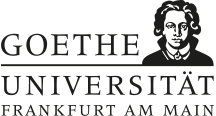
Michael Rothberg, Yasemin Yildiz
In establishing itself as the successor to National Socialism, West Germany faced a paradigmatic dilemma of political transition: how to situate itself in relation to the state-sponsored crimes of the immediate past. Over the course of several decades, and in the face of conflict and controversy, a public embrace of responsibility for the Holocaust came to play a key role in the definition of German national identity, even as private discourses continued to focus more on the fate of non-Jewish Germans than on the Shoah. Although it is rarely remarked, the period in which this public consensus about the Nazi genocide evolved corresponds exactly to the years in which labor migration transformed national demographics. How does it change the narrative of German Vergangenheitsbewältigung (“mastering the past”) when we take account of this other history? What implications does such a conjunction have for other nations dealing with difficult pasts in heterogeneous societies? Immigrants to Germany—especially those coded as “Muslim”—are often described as uninterested in and even hostile to commemoration of the Holocaust; however, a substantial “archive” of immigrant memory work on the Holocaust and National Socialism exists in a variety of arenas. Drawing on examples from diverse realms of cultural production and social activism, this talk will argue that migrant archives can prompt a new approach to attempts to grapple with the traumatic legacies of genocide in Germany and beyond.
Michael Rothberg is Professor of English and Conrad Humanities Scholar at the University of Illinois at Urbana-Champaign, where he is also Director of the Holocaust, Genocide, and Memory Studies Initiative. His latest book is Multidirectional Memory: Remembering the Holocaust in the Age of Decolonization (2009), published by Stanford University Press in their “Cultural Memory in the Present” series. He is also the author of Traumatic Realism: The Demands of Holocaust Representation (2000), and has co-edited The Holocaust: Theoretical Readings (2003) as well as special issues of the journals Criticism, Interventions, Occasion, and Yale French Studies. Together with Yasemin Yildiz and Andrés Nader he has won a 2011-2012 ACLS Collaborative Research Fellowship for a project exploring migration and coming to terms with the past in contemporary Germany.
Yasemin Yildiz is Assistant Professor of German at the University of Illinois. She received her M.A. in German and History from the Universität Hamburg and her Ph.D. in German Studies from Cornell University. Prof. Yildiz specializes in 20th and 21st century German literature and culture with research interests in literary multilingualism, minority discourses (especially Turkish-German and German-Jewish), transnational studies, and gender studies. She is the author of Beyond the Mother Tongue: The Postmonolingual Condition (2012), published by Fordham University Press, as well as essays on migration, gender and Islam, multilingualism, and Holocaust literature. She is currently working on two new book projects: a study of the figure of the “Muslim woman” in contemporary German literature, film, and media and a co-authored study on immigrants and Holocaust remembrance in contemporary Germany (with Michael Rothberg and Andrés Nader).
